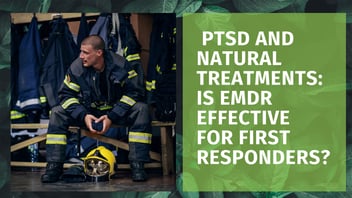
Fire in the Dark: Healing Sexual Trauma and Regaining Your Spark
Sexual trauma is one of the most universally experienced types of trauma and affects people in many unique and intrusive ways. Sexual trauma doesn’t only happen as a result of sexual violence or abuse, either. It can include accidental or relational experiences that create memories and feelings that overwhelm our nervous system. There’s nothing worse than being hijacked and stuck in fear or numbness. Don’t lose hope. We don’t have to be held captive by our past pain.
What is Sexual Trauma?
Sexual trauma, according to the Sexual Trauma & Abuse Care Center, is “any sexual act that is imposed on another person without their consent”. Abuse is typically only included in the term if the violence was long-term or ongoing.
Some examples of sexual trauma include sexual assault, rape, sexual abuse, stalking, sexual harassment, street harassment, childhood sexual abuse, familial sexual abuse or incest, sex trafficking, online sexual harassment, and sexual violence in relationships, but no matter where the sexual trauma might come from, it is likely to have psychological, emotional, and physical effects on a survivor.
What might a response to sexual trauma look like?
Just like with other types of trauma, the response can vary widely from survivor to survivor, but often survivors of sexual trauma experience depression, flashbacks, post-traumatic stress disorder, self-harm, substance abuse, dissociation, panic attacks, eating disorders, sleep disorders, or even suicidal ideation.
In children who have experienced sexual trauma, you might see similar impacts, but you should also look for excessive knowledge of sexual topics, keeping secrets or not talking as much as usual, regressive behaviors like thumb sucking or bedwetting, overly compliant behavior, changes in eating habits, change in their mood or personality, nightmares, or other unexpected behaviors. As these children grow older, they might experience feelings of guilt, struggling with intimacy or relationships, or struggling with their self-esteem. Remember, these issues can also show up in other issues, so it’s always best to meet with a professional rather than diagnosing yourself.

How can we help?
Cognitive Behavioral Therapy is one of the most effective ways to treat sexual trauma because it allows people to deal with not just the initial trauma but also the impacts it has had on their life. Therapy can help people recovering from a recent or acute sexual trauma, and can also help those dealing with childhood sexual trauma or even sexual trauma from earlier in their adulthood.
EMDR, or Eye Movement Desensitization and Reprocessing, Therapy, can also be a valuable way for someone to treat sexual trauma. EMDR offers a “shorthand” mechanism to effectively address deep wounds and bring stability without distressing vulnerability for the client. That means that EMDR can be used to help someone work through a devastating experience without them having to re-tell the entire story.
Sexual trauma is scary, overwhelming, and triggering for so many people. We avoid it and ignore it as a society, and our discomfort has led to survivors dealing with stigma, often so much so that it is not covered in-depth during therapy. As mental health practitioners, it is our responsibility to open the door for people to have conversations that help them to heal.
For more information on this topic, visit the following links:


